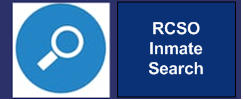Richmond City Sheriff's Office
City of Richmond
Address:
1701 Fairfield Way
Richmond, VA
23223 USA
Email: Ask The Sheriff
Fax: (804)646-4291
If you would like Sheriff Antionette V. Irving to attend your event to speak or to be a guest please fill out the event form and state what your requests are. We would like to have at least 30 days advance notice. We look forward to attending your events.
Internal Programs
RCJC Program Department
Mission of the Richmond City Justice Center Programs Department
Provide opportunities for each inmate to reclaim, transform, and restore their life.
The RCJC Program Department’s mission is to provide opportunities for each inmate to reclaim, transform, and restore their life. We work to bridge the gap from incarceration to reentry into the community by addressing criminogenic needs and barriers most closely related to reoffending, in order to increase public safety, lower the recidivism rate, and transform the lives of those who have been residents of the RCJC.
Other than a decrease in percent, there are not specific factors that can specifically measure recidivism. However, “reentry indicators” are factors closely associated with lower recidivism rates, while also providing other desirable outcomes within the community. The most significant reentry indicator areas, which the RCJC Program Department focuses on are the following Program Pillars:
- Substance use disorders
- Mental health
- Job preparation
- Housing
- Educational attainment
- Reentry planning
These aforementioned areas are those most highly correlated with relapse, reoffending, and recidivism. As such, the RCJC Program Department will ensure our programs focus on these key areas and that each offender who is willing has an opportunity to participate and enroll in our program. Further, all pillar areas and associated programming and curriculum utilize evidence-based and best-practice models. Currently, the RCJC has three housing units with programs for men and one for women, all entitled R.E.A.L.
R.E.A.L.
Recovering from Everyday Addictive Lifestyle (R.E.A.L.), the RCJC’s premiere program, has a purpose of reducing recidivism through ensuring the individual is prepared for re-entry into society. This is done by assisting residents of the RCJC to positively and comprehensively address their addictions and behaviors, while appropriately modify their thinking.
Social learning models and cognitive-behavioral interventions are utilized to help participants restructure and reframe destructive thought patterns while developing healthy coping skills. The focus on behavioral modification inspires members to face their problems and overcome their addictive lifestyles, whether it is to drugs, alcohol, dealing drugs, women, cars, etc. – namely, whatever placed them in their current situation, and so often kept them incarcerated time and time again. The addiction recovery piece is fueled by the principles of NA and AA and is carried out through the dedication of addicts helping other addicts to take a step toward the acceptance of a problem that will continue to death unless addressed. Addiction recovery is delivered primarily by programs in the community that volunteer their services to the REAL Program. Such organizations include: Kingdom Life Ministry (KLM), McShin Foundation, Offender Aid and Restoration (OAR), and ROOTS (Reinventing Ourselves Outside the System).
Before participating in the REAL Program and prior to the birth of his children, one resident noted he had no motivation to get out. The program changed his viewpoint by offering him structure. He has responsibilities in the program and he has worked himself up to the role of group leaders. His goal is to come back and help with and speak at the program after his upcoming release. Another resident described being in jail as “a rite of passage” and a “second home” to many of the inmates. He even said that a lot of them “don’t know what life’s about.” As these residents have spent their life in and out of jail, they seem to become more comfortable in the jail than outside. They are afraid of facing the same situation they have always been in.
In order to truly recover, many of the residents requested programs that focus on structure centered on a change in the environment they have grown up in. One man said that although structure is difficult, it is the only way they will be able to recover. “Sometimes I think about leaving the program because sometimes it’s just so hard to get myself up in the morning and get myself going. But I need to be in the program,” one inmate stated. “It’s hard now, but better for later.”
The program is self-paced, in order to allow all participants to complete the program and graduate regardless of their sentence length. Divided into four-phases, residents have up to 45 days to complete each. The curriculum is evidence based and provides educational information about addiction, behaviors, and cognitive changes. Completion of each phase enables program participants to begin identifying behaviors that must be changed, enablers, denial, relapse, and goal setting, among many other areas that must be addressed in order to have the highest likelihood of a successful re-entry.
By applying a 12 Step orientation to all aspects of life, along with assigned readings, workshops, group discussions, and personal growth collaborations, phase work is reiterated within the community. Additionally, participants go through various other classes, including anger management, resume writing/job preparation, life skills, and domestic violence, among others. While religion is not an aspect of mainstream 12 Step recovery, an emphasis on spirituality is, and residents are encouraged to develop an intimate relationship with a higher power.
More recently implemented among program participants, is general education, which is delivered to each program pod; all program participants have the option of participating in RCJC School. They are encouraged to complete their General Equivalency Degree if they have not previously graduated from high school. Additionally, through the RCJC School, residents have the opportunity to enroll in college courses offered by Virginia Commonwealth University, Virginia Union University, and the University of Richmond; some of these courses offer college credits, others certificates of completion.
Speaking on the program, one man stated, “There is no comparing life on the program tier to life on a regular tier. The two are like night and day. When I was on a regular tier, all the conversation (or 90% of them) were negative. I learned how to be a better criminal from all of the talk of criminal behavior. Here, there is always something positive, talk of hope… This is my first time on a program tier. If I would have come over here years ago, there’s a good chance I would not be here today… Now, I realize there’s another way, I have reinvented myself through the help of the pastors, staff, and volunteers who share with us various avenues of success. They have laid out a blue print for success – all we have to do is follow it. I am so much more prepared for my release being on this tier than being on a regular tier.”
Expressing her gratitude for the program available to females, a recent graduate shared: “This time around the program helped me because I allowed Ms. Glover [Program Coordinator] and the program into my heart. I didn’t agree with Ms. Glover’s tactics at times, however, I did see her point of view. The hardest part was doing the 3 steps in 3 days, but I learned, that if I sat down and did the work it worked. Because of this program I am not afraid to find my inner-child and let her know that it wasn’t her fault. And now that I’m out of jail I’m still clean (8 months and 16 days). I still go to meetings, and I share the work she gave me with other recovering addicts and sexually abused people!”
Side Note: While some of the programs have previously held other program names (i.e. Men in Recovery, Belief) and has longevity and success associated with them, all RCJC programs are now run under the same name and have the same program requirements to graduate, in order to ensure continuity of success and requirements of the programs.
Eligibility and Criteria:
A current resident may request to be placed in the REAL Program by submitting a written request. Each request is reviewed on an individual basis and decisions are made based on charges and institutional history.
For more information on the program, citizens may contact at (804) 646-0109










